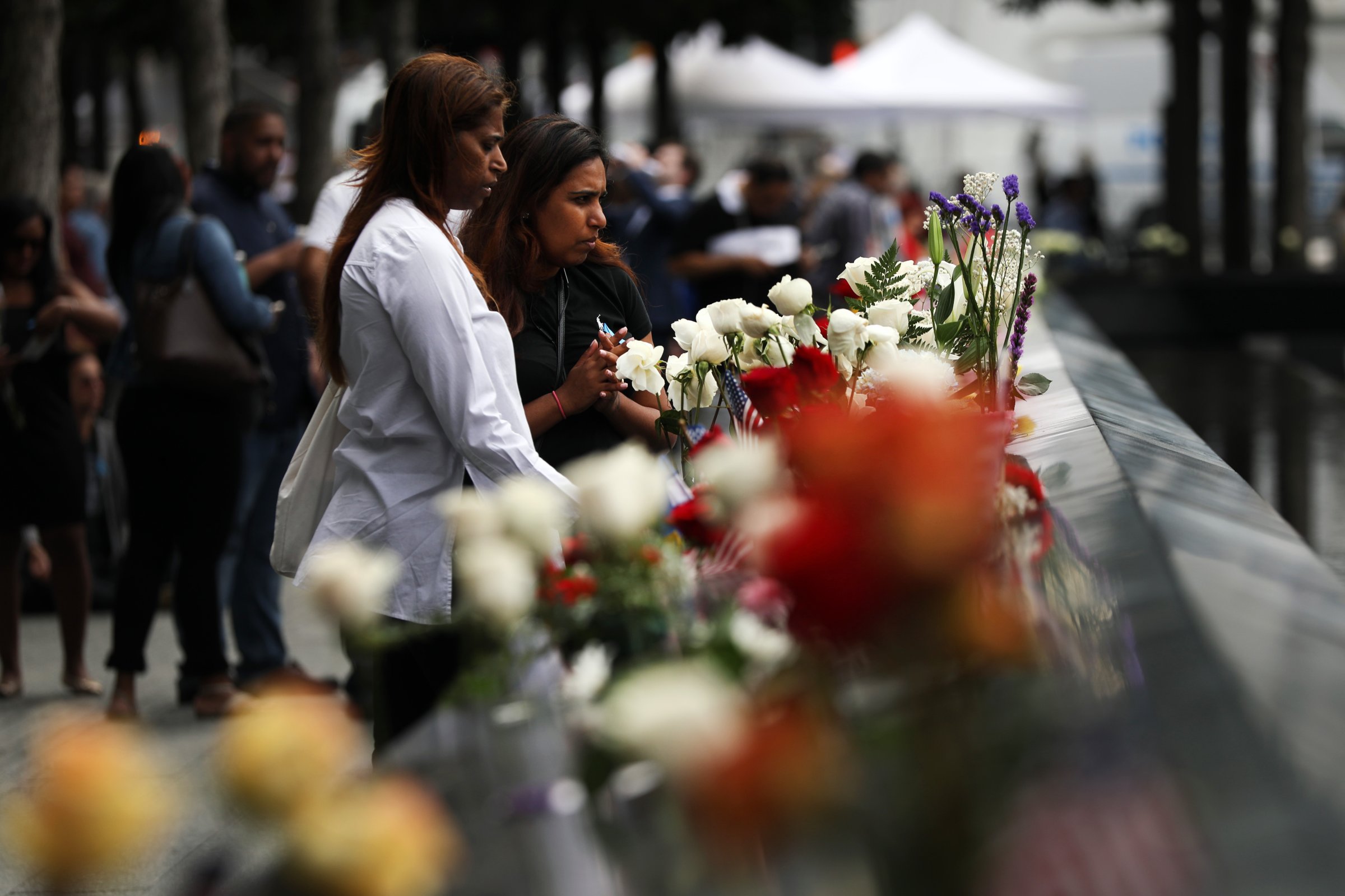
Every 9/11 anniversary that passes gets both easier and harder. Easier, because time numbs pain, even the most searing and awful kinds of pain. Harder, because with time comes perspective, and 18 years later, the shock and enormity of those despicable acts continue to stand as one of the most atrocious deeds humans have ever perpetrated against one another.
The passing of time also makes it harder because we can see more clearly the disastrous chain the events of that day kicked off, how they led to war in Afghanistan and then to war in Iraq, both wars that the U.S. is currently still waging. It’s hard to say that the world is safer place to live as a result of those wars. What we can say is that these wars have cost the U.S. plenty; trillions of dollars have been spent, thousands of lives have been lost, and U.S. global leadership has been forever tarnished, both in the eyes of those living in the U.S. and in the eyes of those living outside it.
It’s also worth remembering that after 9/11, the U.S. came together like never before; so too did the rest of the world. Bush’s approval ratings hit 90%, and every U.S. ally supported the war against Taliban; even Russia helped by supporting U.S. use of bases in central Asia. Winning a war in Afghanistan and stabilizing the country afterwards was always going to be a mammoth challenge; it became impossible once Iraq was tacked on.
9/11 is a day of reflection, and it’s hard not to reflect on the fact that should another 9/11-type of attack strike American soil—heaven forbid—the world won’t rally around to the U.S. side like it did back in 2001. This is not to say that the failed wars in Iraq and Afghanistan are the sole reason of our fracturing relationships with the rest of the world, but looking back in hindsight, they were a key contributor to it. So too to our fracturing as an American people—wars being commanded by political and military elites but fought on the backs of working-class men and women who were then not properly cared for upon their return didn’t create the inequality that is currently roiling America today, but it did lay it bare for all to see.
Standing on this side of 2019, it’s becoming clear that too much bad blood has developed between countries for the geopolitical developments of the last two decades to be swept under the rug in times of crisis like they were after 9/11. Even more depressing? It’s far from clear that the U.S. would come together like it did in 2001 given the current political polarization the country is currently facing. I have never felt prouder as an American as I did in the days after 9/11, when Americans of all creeds, colors, religions, sexual orientations and ethnicities lined up to give blood to those in need. Back then, it took a tragedy on the scale of 9/11 to remind us all how united we really are in our humanity; given where we are today, I doubt that would be enough. That’s what makes this 9/11 anniversary the hardest one of all.
More Must-Reads from TIME
- Donald Trump Is TIME's 2024 Person of the Year
- Why We Chose Trump as Person of the Year
- Is Intermittent Fasting Good or Bad for You?
- The 100 Must-Read Books of 2024
- The 20 Best Christmas TV Episodes
- Column: If Optimism Feels Ridiculous Now, Try Hope
- The Future of Climate Action Is Trade Policy
- Merle Bombardieri Is Helping People Make the Baby Decision
Contact us at letters@time.com